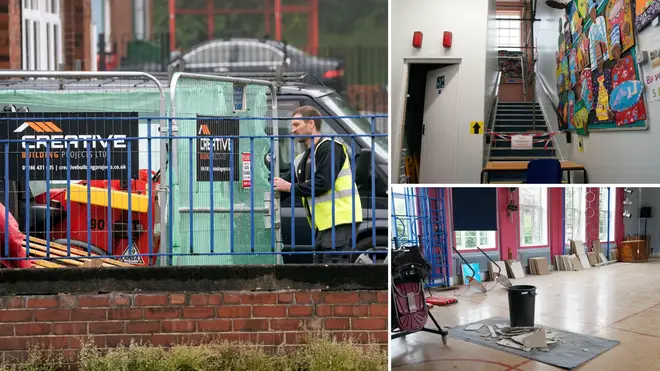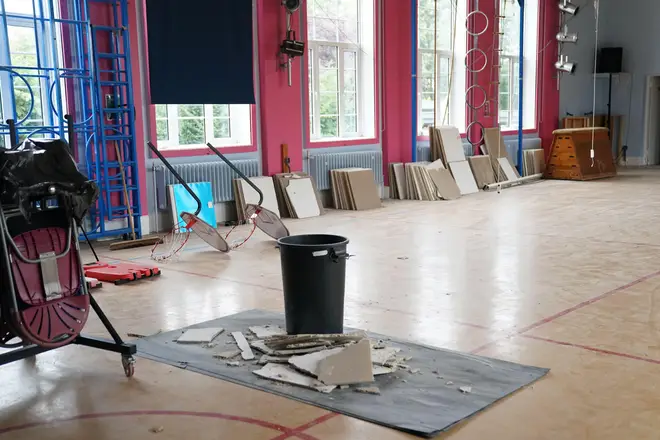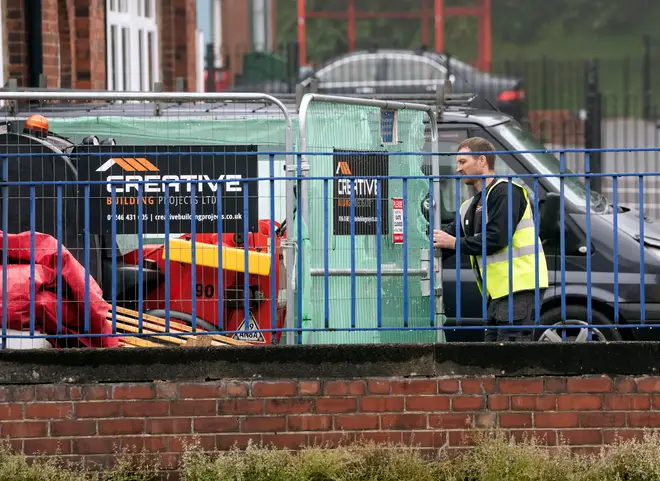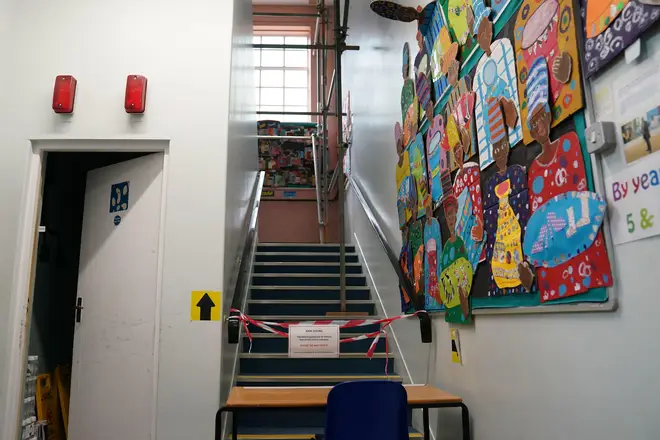
Nick Abbot 10pm - 1am
1 September 2023, 14:51 | Updated: 7 September 2023, 11:40

More than 100 schools have been hit by fears that concrete in their buildings could collapse.
Pupils will be taught out of their classrooms or even off-site while urgent repairs are put in place amid fears over a type of material called RAAC that could cave in.
That decision was made just days before the new school year starts.
But the full list of schools has not been published by the Department for Education.
Here is what's happening - and when parents at affected schools will be told.
RAAC stands for reinforced autoclaved aerated concrete.
It is a light and "bubbly" type of concrete that has sometimes been used in walls, floors and roofs.
But it has been compared to an aero chocolate bar in that it is weaker and less dense than other reinforced material.

They were used in schools and other buildings, including hospitals, from the 1950s to the 1990s but it has a design life of about 30 years.
Now, schools minister Nick Gibb has revealed that a beam collapse in the summer led to the government deciding to take action, having previously believed the buildings were not at high risk.
Previously, in 2018, the roof of a school in Kent collapsed.
Now, the government has sent out a questionnaire asking schools if they think they have been affected.
If they said yes, a survey was carried out and the building was assessed.
On top of the 104 affected, 52 have had action carried out - but there are fears more are affected.

The Department for Education is yet to publish a list of schools and previously said it wouldn't for operational reasons.
Nick Gibb has told LBC he wants parents to find out from the schools but not the media.
Some affected schools still had not been contacted early on Friday.
Gillian Keegan, the education secretary, said: "If you don't hear, don't worry."
A number of schools across England - of which there are 20,000 - have revealed they are affected publicly.

They will still learn but they will have their education disrupted by having to be taught out of their usual buildings.
This could see them moved into temporary accommodation, away from affected buildings and classrooms, or put into different schools.
The government is assessing whether schools can carry on using their site - but not affected classrooms - or if children need to be moved offsite.
It will assess whether remedial works, such as propping up the ceiling with beams, will be necessary.

Schools Minister would be okay with kids under propped up classroom ceilings
There is no timeline at all.
LBC's Nick Ferrari asked Gibb if the problems would be fixed by the Christmas holidays.
"It will be resolved earlier (than school Christmas holidays)," he said.
But he added: "We hope that in a couple of weeks at the latest we will have alternative accommodation if necessary in place, or remedial work done in the school, if that is possible, to use props to prop up to make it safe."